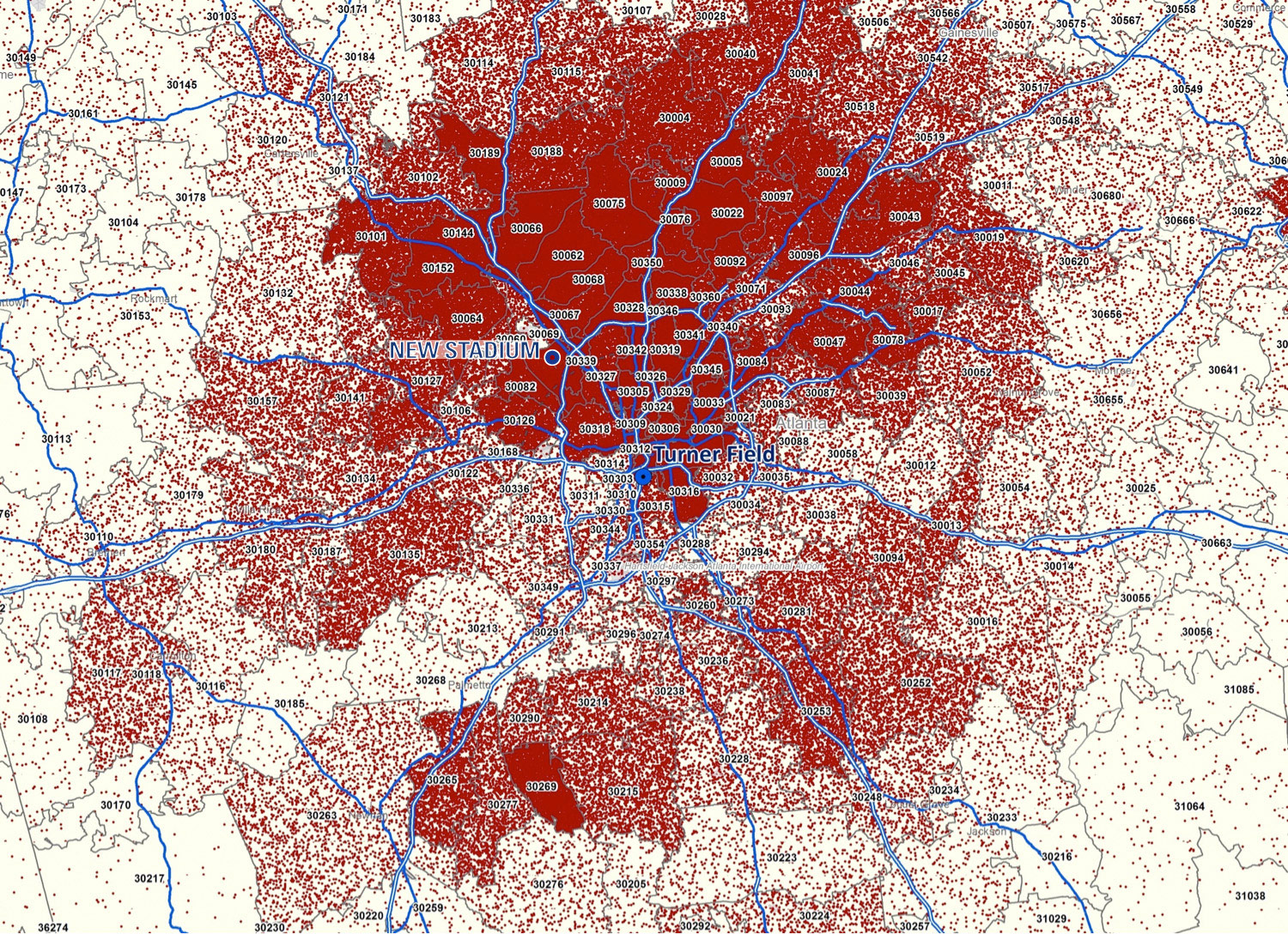
As you can see, Braves ticket buyers are coming from the north of the city of Atlanta - the suburbs. Not the generalize, but the suburban areas surrounding a city are usually pretty white in racial make up.
Looking at this map, I can't help but think of the bittersweet irony with the Braves organization wanting to move to Cobb County. Strictly as a business decision, does the move make sense? Yes. Despite the Braves currently playing in a relatively young stadium, they don't own it or control the surrounding area. Nor is the stadium close (relatively speaking) to where its fan base is located. That fan base, as you can generalize from looking at the map, is pretty white. But that's not what the Braves have traditionally represented.
The Braves moved from Milwaukee to Atlanta in 1966, and they took Hank Aaron with them. This was a big fucking deal. Think of the social landscape of America at that time. The Civil Rights movement gained steam in the 1950's and getting into even just the summaries of landmark events of that movement would lead to an incredibly large blog post, so mentioning a couple of the remarkable names will need to suffice: Rosa Parks, Martin Luther King, Malcolm X just to scrape off the top of the list. The South was fighting against desegregation, which led to George Wallace's run for president as a third party candidate in 1968 with a racist platform and won most of the South - Georgia included. This was an explosive time in American History, yet in the middle of it, the South - the Deep South, not just some Mason-Dixon border city near the North - got its first Major League Baseball franchise. And it came with an all star player who was black.
Pretty amazing. Baseball meant a lot more to American culture (not to mention peace, harmony, and unity) back then.
Other cities in the South could have tried to get a franchise. In this age, we think of Atlanta as a major city but that wasn't the case in the 1960's. Political leaders in Atlanta at that time realized the city's potential for growth if it got with the program of embracing, instead of rejecting, culture; and they brought the Braves to town. This attitude shift in the politics of one city in the Deep South caused it to grow. Atlanta's population in 1960 was around 487,000 - now the population of the Greater Atlanta area is over 5,457,000.
Conversely, let's look at another Deep South city: Birmingham, AL, had a 340,000 in 1960. While not as large as Atlanta, it definitely had the potential for growth. But Birmingham didn't grow. The city's population has dipped to around 212,000; the Greater Birmingham area has a population of 1,136,000.
Birmingham faced the same choice that Atlanta had in the 1960's: accept normative cultural standards and be embraced by America or stay the same. Birmingham made their bed, and I'm sure you know how the cliche goes from there.
This is why the Braves moving away from the city of Atlanta is sad. In the 1960's, the Braves represented the best of America; what America was capable of achieving.
And now? Now they represent the cultural phenomenon of "white flight." When the Braves open their new stadium in Cobb County, it won't just be a sad day for Atlanta; or for baseball - it'll be a sad day for this country. That isolation you feel - be it culturally, socially, or politically - it's represented in this Braves move away from Atlanta. The Braves moving to the urban core of a Deep South city in the 1960's represented America going in the right direction, but this move reflects a cultural shift of present day America going in the wrong direction.

No comments:
Post a Comment